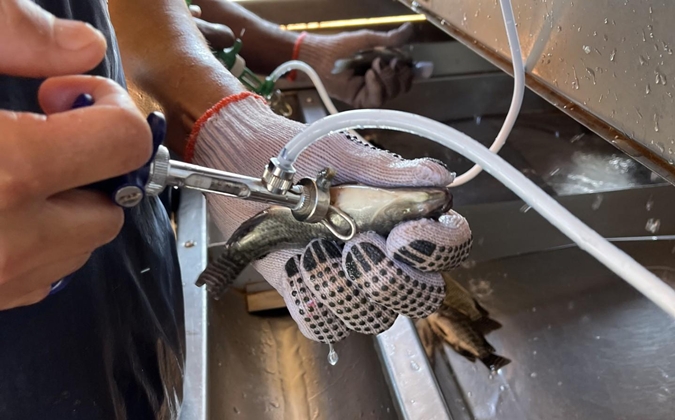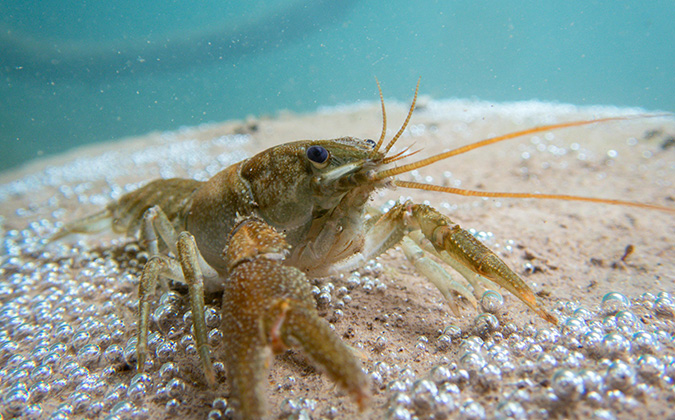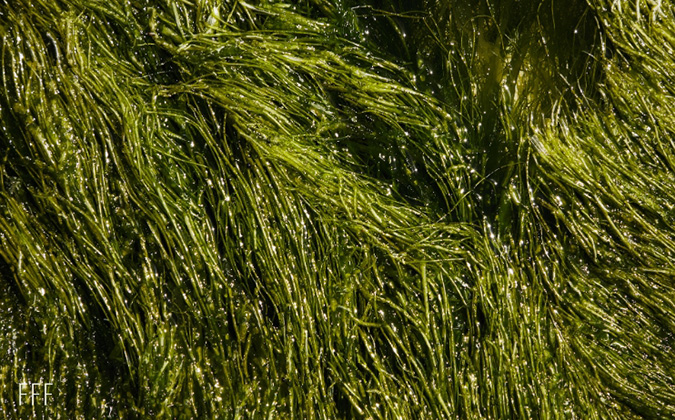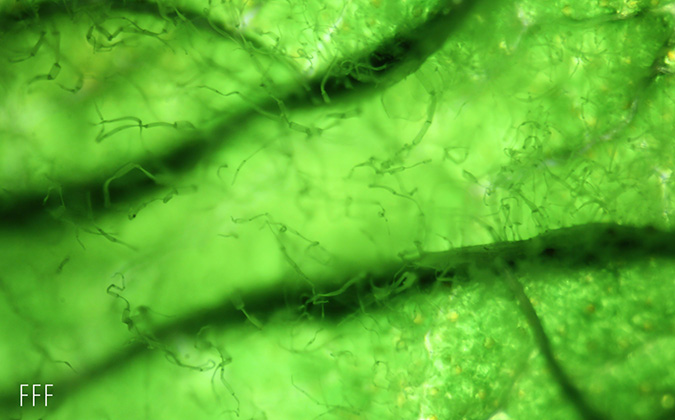
Just add stones? Simple alterations to aquaculture environment can aid disease fight
Simple environmental enrichments in aquaculture can reduce the impact of pathogens on salmonids, a new study from Finland found.
The work looked at the effect of using stones in tanks stocked with brown trout and Atlantic salmon exposed to Flavobacterium columnare, the causative bacterium of columnaris disease. They analyzed both the effect of pre-treating the stones in lake water before introduction to tanks, as well as the quantity of stones used.
Quality and quantity counts
The researchers found both pre-conditioning and increasing the quantity of stones increased fish survival.
“The most plausible explanation for the higher fish survival is that the conditioned stones harbored microbial communities that inhibited the F. columnare epidemic,” the scientists from University of Jyvaskyla and Natural Resources Institute Finland explained.
“Recent studies have begun to investigate the role of environmental microbes of biofilms in suppressing the occurrence of pathogens, and F. columnare has been shown to be a poor competitor against other bacterial species.”
As for the higher numbers of stones having an effect, reducing contacts between healthy fish and those that are shedding bacteria could be a factor, the researchers suggested. Fish occupying habitats near the stones also could have reduced stress and thereby increased disease resistance, they added.
Although both brown trout and Atlantic salmon saw increased survival in enriched tanks, a statistically significant effect was not observed in salmon, the researchers stressed, though they also noted that this may be due to the fact that salmon are less susceptible to F. columnare and that columnaris disease progresses more slowly in salmon.
Environmental changes could reduce antibiotic use
The scientists noted the importance of finding alternatives to antibiotics in the treatment of columnaris disease and other bacterial infections, citing work showing antimicrobial resistance in some strains of F. columnare and the possible effects of antibiotic spillover into the environment beyond aquaculture operations.
There is currently considerable interest in environmental enrichment in aquaculture, with numerous potential welfare benefits mooted in a growing body of research.
“We found that even a simple environmental enrichment can reduce the effect of diseases in the aquaculture environment. This may have important implications for questions of when and how aquaculture enrichments should be applied,” the scientists wrote.
If permanent enrichments increase labor costs or complicate cleaning processes, previously conditioned enrichments could be applied just before anticipated disease outbreaks, the researchers suggested.
“Our results indicate that such a short-term enrichment of the exposure environment with just a few conditioned enrichments can already have a significant positive effect on fish survival, which could reduce the need for a medical intervention,” they concluded.
To read the full report in the journal Antibiotics, click here.
Posted on: October 30, 2021






